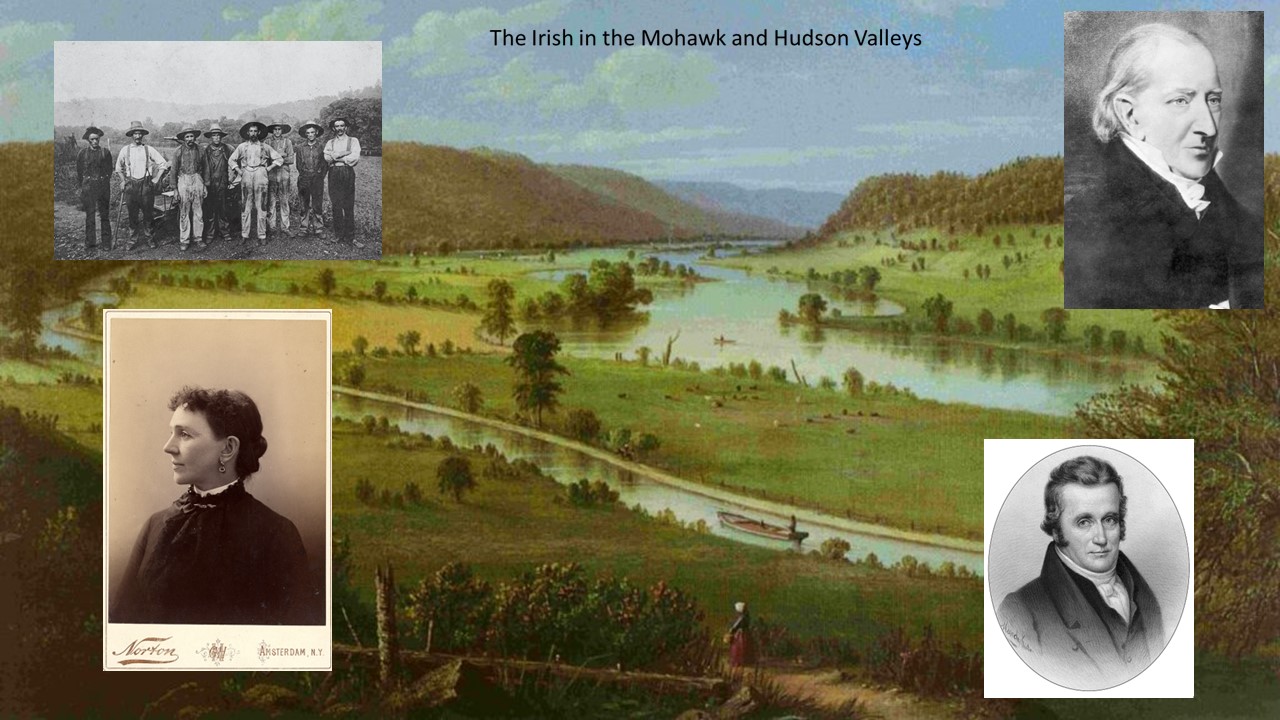The exodus that institutionalized emigration from Ireland began just after the Napoleonic wars and the famines of 1817 and 1822; surged during and after the 1845-51 Great Hunger and continued spasmodically through the remainder of the century. By the mid nineteenth century, many of the Irish
newcomers were poor, as opposed to the earlier ones who had been wealthy professionals. Some came up to this region from New York City, more down from Canada, to work on the canals, railroads, and factories.
By 1849, five-sixths of the population of Ireland depended directly on the land, but in America, the Irish gravitated to the urban centers in the northeast or followed the canals and rails west and established Irish "sections" and "neighborhoods" in the towns and cities along their routes. The Irish worked as "laborers," but several were employed in skilled building trades and manufacturing jobs or working as cartmen and teamsters; others were grocers and merchants; and some were physicians, attorneys, brewers, hotel keepers, teachers, and maids. Famously, many got involved in politics!
This talk with Elizabeth Stack, PhD, will look at the contributions of the Irish in the region, including the Devereux brothers, Dominick Lynch, Robert McBride, Thomas Wheeler, and Leonora Barry, as well as the more general Irish experience in upstate New York.
This talk will be hosted by Fulton County Historical Society and will be available on Zoom. To find out more about the Fulton County Historical Society, check out their website.
